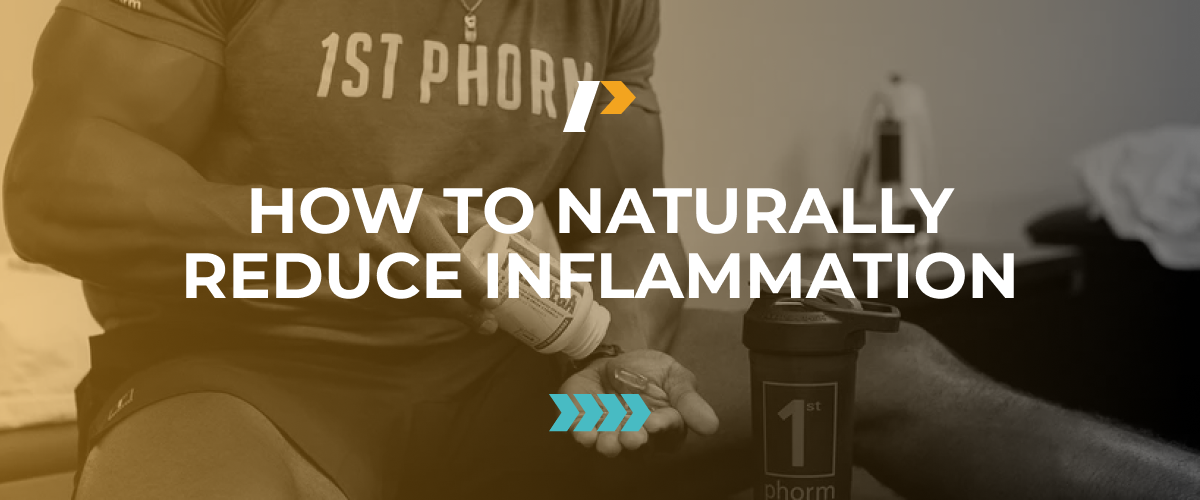Inflammation can cause pain, discomfort, and wreck havoc on your body when not kept in check.
Some inflammation is good, but if you have experienced excessive amounts of inflammation or chronic inflammation, the chances are you understand why you want to reduce high amounts of inflammation as soon as possible.
In this article, we’ll explain 7 natural ways to reduce inflammation.
WHAT IS INFLAMMATION
Inflammation is your body’s response to injury. Different factors can cause inflammation.
Whenever you get hurt, your body inflames itself around the injury to try and prevent further injury to the area.
It’s also how your body signals to your immune system that it needs some help treating an injury or an infection of some sort.
We have already mentioned injury and infection, but those are not the only possible causes. Your diet can even cause inflammation.
If you’re eating unhealthily or you’re eating something that you’re slightly intolerant to, it will can cause inflammation and damage to your body over time.
Autoimmune diseases can also cause inflammation as autoimmune diseases are defined as conditions where the body accidentally attacks healthy cells in your body.
Chronic stress… drinking … smoking… and other lifestyle factors can also lead to high levels of inflammation in your body.
REDUCING INFLAMMATION
If you’re suffering from high amounts of inflammation, it’s not good, but the good news is there are ways to help your body reduce inflammation. As well as reduce the side effects you’re experiencing.
And unless the inflammation is incredibly severe, most of these things you can do from the comfort of your home.
Shoot, some of the best things you can do is focus on good ol fashion rest and recovery as well as sticking to a good nutritious nutrition plan.
And if you don’t know where to start improving your nutrition, don’t worry, we’ve got your back.
You can reach out at any time and talk to a NASM Certified Personal Trainer for free, and come up with a nutrition plan for your lifestyle!
Now, on top of that, here are 7 things you can add to your nutrition plan to help your body naturally reduce inflammation in your body. Give one or more of these suggestions a try.
1. CURCUMIN
Curcumin is bright yellow and produced from a plant known as the Curcuma Longa.
Curcumin is used as an ingredient, flavoring, and occasional additive to certain body products. It’s also a member of the ginger family.
Curcumin is a great source of antioxidants, which are a type of chemical compound that your body can use to fight inflammation.
2. FISH OIL
The reason people talk about Fish Oils is because of the Omega-3 Fatty Acids. Fish oils can be broken down further into two subtypes, EPA and DHA.
You get these oils from fish, whose meat is rich in them, primarily salmon, tuna, and anchovies. Studies suggest that taking fish oils, and other fatty acids, is a great way to reduce inflammation naturally.
If you want to try and add fish oil to your current health efforts, try adding 1st Phorm’s Full-Mega to your diet.
3. TURMERIC
Turmeric is another yellow spice that’s used to reduce inflammation. And like curcumin, turmeric is closely related to ginger. You oftentimes find turmeric in Indian food.
Studies show that like it’s cousin curcumin, turmeric can help reduce inflammation as well.
4. RESVERATROL
Resveratrol stilbenoid, which is a type of phenol. Phenols are another type of chemical compound that can help combat inflammation, just like antioxidants.
You get resveratrol from the skin of different types of berries. Grapes, blueberries, raspberries, and mulberries all contain a lot of resveratrol, and so do peanuts actually.
They are great because, unlike antioxidants which help fight damage after it appears, phenols help prevent inflammation-related damage from happening in the first place.
If you want to try to increase your resveratrol consumption, try 1st Phorm’s Opti-Reds 50 supplement.
5. GINGER
Most people know what ginger is. It’s that strong, flavorful root that you use to help calm a sick stomach… or if you are like me, eat a lot of it with your sushi!
You’ll also see ginger in a lot of drink recipes, and for good reason. Much like its cousins, curcumin, and turmeric, ginger is great for reversing the harmful; effects of oxidative stress, which causes inflammation.
6. VITAMIN-PACKED GREENS
In general, green fruits and veggies are packed with vitamins, minerals, antioxidants.
Now, if you’re worried that you can’t eat a pound of spinach every day, or even if you are like most Americans and struggle to even get veggies in at each meal… just know that there is still hope!
Instead of forcing yourself to dramatically upping your fruit and veggie intake, you can choose a quality, greens supplement instead.
A high-quality greens supplements are packed with vitamins, minerals, antioxidants, and polyphenols, all of which can benefit your body in the fight against inflammation.
If you want to try upping your fruit and veggie game, try 1st Phorm’s Opti-Greens 50.
7. PROBIOTICS
Probiotics include a wide variety of bacteria that help your body better digest the foods that you eat.
Probiotics can be very beneficial in the fight against inflammation, because there have been several studies linking probiotic supplementation with improved digestive health.
Probiotics can also help improve your immune system and inflammation response. Some of the best food sources are kefir, sauerkraut, yogurt, and kimchi.
For most people though, they don’t eat a diet rich in probiotics, therefore it creates an opportunity for a high-quality probiotic to make a big difference in your gut health and help to reduce inflammation.





